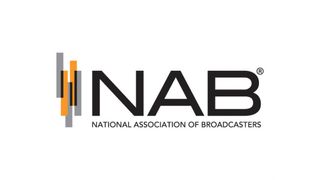NAB to FCC: COVID-19 Challenges Emphasize Need for Dereg

Broadcasters are telling the FCC that the current pandemic provides even more argument for loosening broadcast ownership regs.
They are telling the FCC it needs to declare the video and audio markets more competitive than they have ever been, arguing that both FCC ownership limits--which the FCC under chairman Ajit Pai has tried to loosen--and Department of Justice merger reviews--are "premised on the view that local TV and radio stations exist in markets hermetically sealed against the vast array of choices available to audiences and advertisers."
Hardly, said the National Association of Broadcasters.
"What is certain is that the pandemic will exacerbate existing challenges for local TV stations competing with much larger, better capitalized, and less regulated digital companies for advertising revenue, even as broadcast stations outperform other outlets in serving their local communities," NAB told the commission.
NAB was responding to a request for comment by the Office of Economics and Analytics on "The State of Competition in the Communications Marketplace for a biennial (every two years) report the FCC must prepare for Congress."
Related: FCC Approves Communications Marketplace Report
"That encompasses competition for voice, video, audio and data services from providers of telecommunications, providers of commercial mobile service, multichannel video programming distributors, broadcast stations, providers of satellite communications, Internet service providers, and other providers of communications services."
Broadcasting & Cable Newsletter
The smarter way to stay on top of broadcasting and cable industry. Sign up below
The FCC has to assess whether laws and regulations, or "demonstrated marketplace practices" pose a barrier to competitive entry or expansion of existing competition.
The FCC issued its first communications competition report in 2018, so this will be its second bite at the apple, but its first since a federal appeals court last year threw out most of its most recent attempt at broadcast deregulation--in response to its congressionally-mandated quadrennial review of whether regulations are in the public interest. The broadcast dereg was premised on the rise in broadcast competition from MVPDS and OTTs, just as NAB has been arguing.
In that first report, the FCC did not actually draw any conclusions about competitiveness one way or the other, but rather compiled lots of information in one place and provided assessments on the state of deployment, barriers to entry, areas unserved by advanced communications, and what the FCC has done and will to advance the deployment and competition agenda, in the process consolidating a number of reports the FCC used to conduct and release as separate documents, as Congress directed.
Contributing editor John Eggerton has been an editor and/or writer on media regulation, legislation and policy for over four decades, including covering the FCC, FTC, Congress, the major media trade associations, and the federal courts. In addition to Multichannel News and Broadcasting + Cable, his work has appeared in Radio World, TV Technology, TV Fax, This Week in Consumer Electronics, Variety and the Encyclopedia Britannica.

